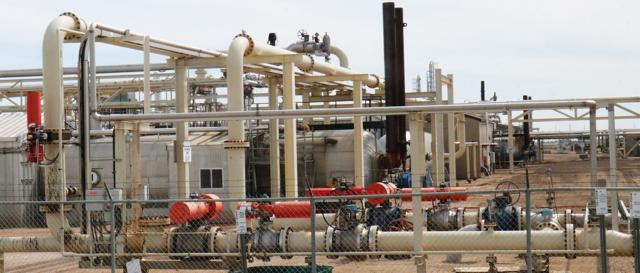SASKTOON - As part of efforts to achieve emissions targets, Federated Co-operatives Ltd. (FCL) has signed a memorandum of understanding Thursday with Whitecap Resources that will tangibly increase the amount of carbon dioxide being captured and sequestered in Saskatchewan.
FCL is committing to reducing greenhouse gas emissions by 40 per cent below 2015 levels by 2030. FCL is also aspiring to achieve net-zero emissions by 2050.
Through the planned operating agreement, carbon dioxide emissions captured from the Co-op Refinery Complex in Regina and Co-op Ethanol Complex near Belle Plaine, Sask., would be transported to, stored in and used as part of the Whitecap-operated Weyburn unit.
“The transition to a low-carbon economy is one of the largest, but most necessary, shifts we’ll have to make in our long history,” said FCL CEO Scott Banda. “Carbon capture and the work we’re doing with Whitecap is just one of multiple paths we’re exploring as part of a strategic plan to integrate sustainable solutions into our operations to improve environmental performance.”
FCL will fund, construct and operate facilities at the Co-op Ethanol Complex and Co-op Refinery Complex that will capture nearly 500,000 tonnes of carbon dioxide equivalent annually and transport it to the Weyburn Unit, which is the single largest anthropogenic carbon sequestration project in the world.
“We are pleased to partner with FCL in support of their commitment in transitioning to a low-carbon economy,” said Whitecap CEO Grant Fagerheim. “Leveraging our experience and expertise in carbon sequestration will help advance FCL towards its climate goals and provide significant economic benefits to the people of Saskatchewan.”
The Weyburn Unit has sequestered over 36 million tonnes of carbon dioxide (CO2) since the project’s first injection in 2000. The project is expected to continue to sequester carbon at a rate of about two million tonnes per year.
“Today’s announcement firmly positions Saskatchewan as a world leader in innovative carbon capture technology and is just the beginning of significant private investment opportunities in the CO2 sequestration value chain,” Saskatchewan Energy and Resources Minister Bronwyn Eyre said.
“This proposed project will include CO2 enhanced oil recovery, which lowers GHG emissions by 82 per cent compared to traditional extraction methods while increasing production. This is good news for the environment and the economy.”
There are significant environmental and economic benefits for Saskatchewan but clarification regarding climate change regulations and incentive programs for projects that support our transition to the low carbon economy is required to support final investment decisions.
FCL currently expects carbon capture at Co-op Ethanol Complex to be completed in 2024 followed by the commissioning of carbon capture at Co-op Refinery Complex starting in 2026.




